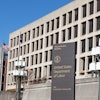SEOUL, South Korea (AP) -- About 80,000 protesters gathered in the South Korean capital Tuesday in the largest demonstration yet against the planned resumption of U.S. beef imports, as the entire Cabinet offered to resign in the uproar over the policy.
President Lee Myung-bak's office did not say whether he would accept the resignations, an attempt to defuse the beef crisis that has paralyzed his government less than four months after the former Hyundai CEO took office following a landslide election victory.
The government agreed in April to lift almost all restrictions that had been imposed on imports of U.S. beef over fears of mad cow disease. Protesters have been demanding for weeks that the government scrap or renegotiate the beef deal amid perceptions it did not do enough to protect citizens.
The demonstrations began after a popular current affairs TV program questioned the safety of U.S. beef and claimed Koreans are more susceptible than Americans and Europeans to the human variant due to genetics.
Michael Breen, a longtime British observer of the local scene and author of the book "The Koreans," blamed the current situation on disinformation spread on the Internet.
"Nothing the government says will be trusted because it is dealing with hysteria," he said.
In the largest protest so far, 80,000 demonstrators waving candles gathered Tuesday evening in central Seoul, according to police, who blocked roads with shipping containers to prevent the crowd from marching to the nearby presidential Blue House.
Some 21,000 riot police were deployed to keep order, the Seoul Metropolitan Police Agency said.
"President Lee hasn't listened to the voices of his people. We still don't have a genuine democracy in our country," said Jang Dae-hyun, a spokesman for a civic group that has organized protests.
The rally coincided with the anniversary of pro-democracy protests in 1987, which intensified when a student activist died after being struck by a tear gas canister fired by riot police. The protests eventually led the country's military-backed regime to introduce direct presidential elections.
"I came to the rally again because Lee has turned the clock back to 21 years ago," said Hyun Jong-chul, 45, an office worker at the demonstration.
Rallies against the beef deal turned violent over the weekend and the government said it will take tougher steps against protesters if the violence continues.
Earlier, thousands of conservative activists supporting the deal protested near the site of the anti-U.S. beef rally.
"It's time to put out the candles," said Suh Jung-kap, a conservative activist. The protesters "are only interested in overthrowing the Lee Myung-bak government, not the safety of public health," he said.
Lee's government said it has asked the U.S. not to export beef from older cattle -- considered at greater risk of mad cow disease -- but rejected calls for a complete renegotiation of the accord, citing possible diplomatic and trade disputes with the U.S.
Lee dispatched several official delegations to Washington on Monday to seek assurances the U.S. will not ship beef from cattle older than 30 months, even though that is allowed under the agreement.
Both Seoul and Washington insist U.S. beef is safe, citing the Paris-based World Organization for Animal Health.
Scientists say mad cow disease spreads when farmers feed cattle recycled meat and bones from infected animals. The U.S. banned recycled feeds in 1997. In humans, eating meat products contaminated with the illness is linked to variant Creutzfeldt-Jakob disease, a rare and fatal malady.






















